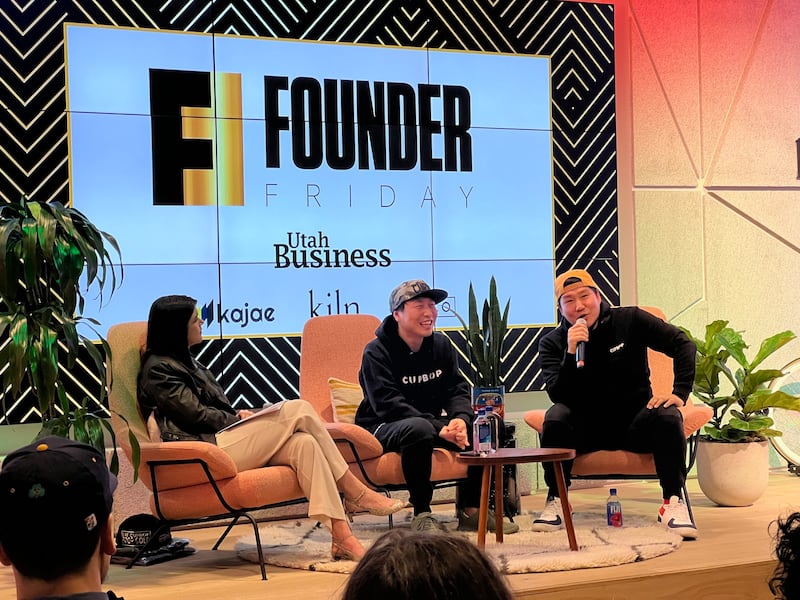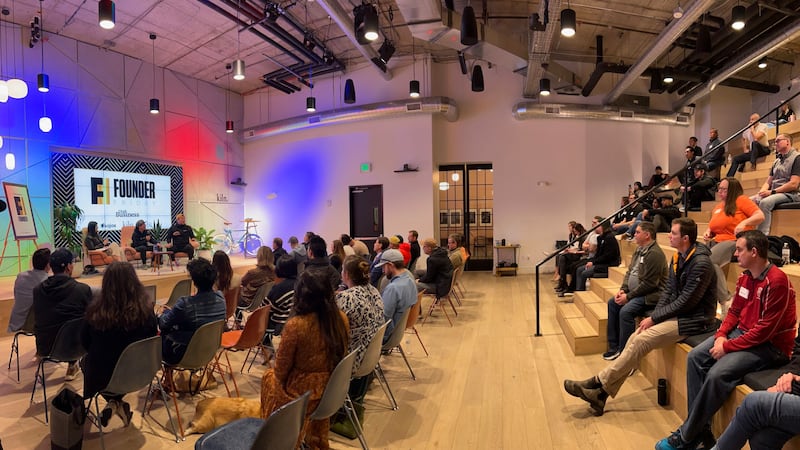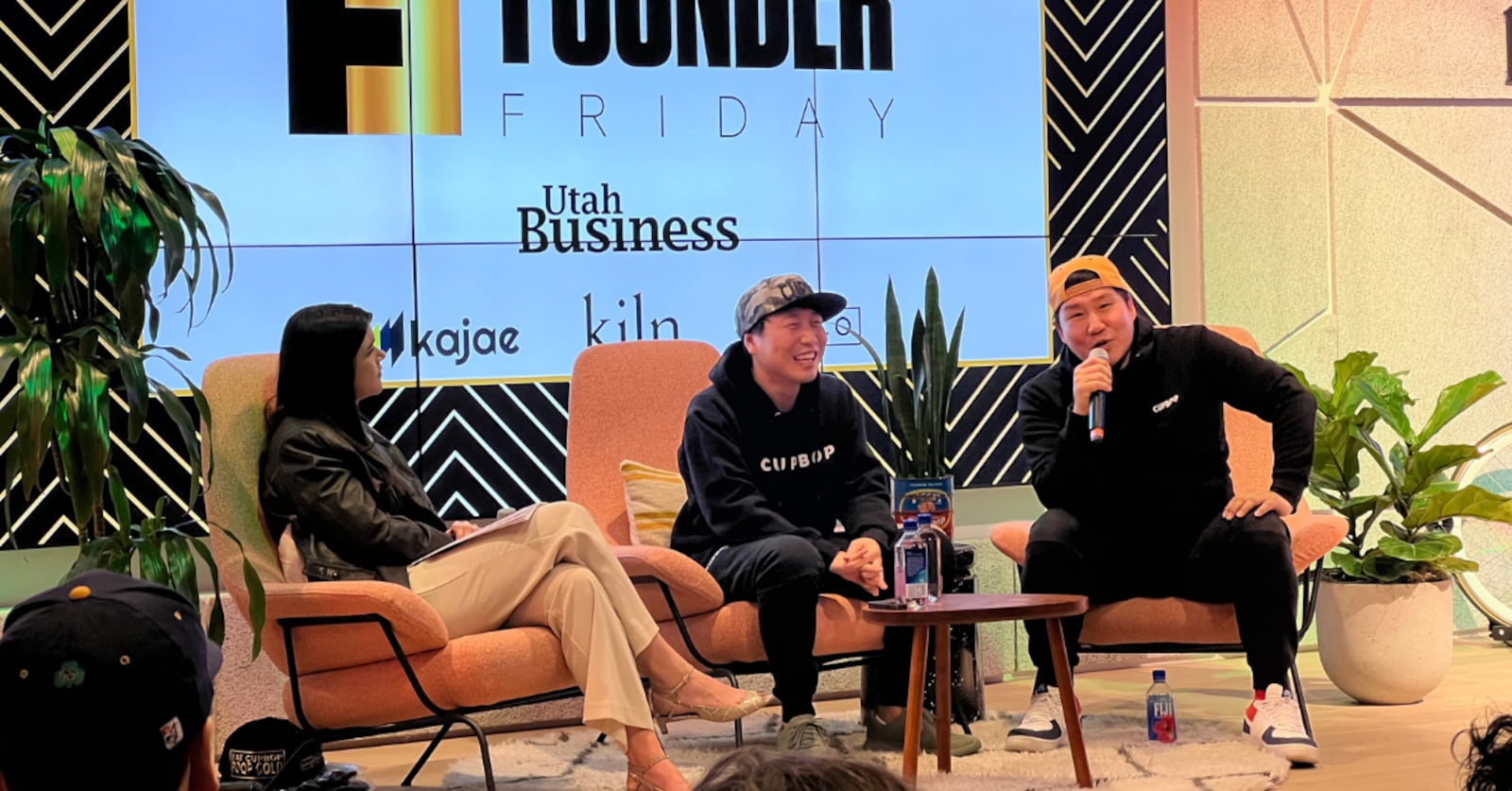
1. Tap into your strengths.
When Cupbop began in 2013, Song made authentic Korean food and spoke little English.
The unfamiliar food confused his American customers, and Song struggled to answer questions about the ingredients. Instead of letting these early struggles overtake his business, Song capitalized on his strengths: a boisterous personality and the ability to learn.
The idea to dance outside the Cupbop food truck came when Song and his crew played rock paper scissors to see who would eat the spiciest sauce. The ensuing scene caught the attention of food truck customers.
“Hey! They looked at me! Turn up the music, and let’s jump in the truck.” Song recounts. “Then, we all three Asians started jumping.” A line of customers soon gathered.
Song, who was a professional dancer in Korea, kept the party going at future venues by dancing outside the truck. When he saw lines of 300+ people, Song knew he was on the right track.
Creating a community and culture around his food hasn’t been easy, but Song’s passion and commitment has produced locations in seven states and hundreds more worldwide.
Over time, Song also “learned from the trash can” to perfect Cupbop’s American-style Korean food. He tells customers, “Shhh … just eat.” They do. And they come back for more.
2. Let opportunities come to you.
Song wanted to open a Cupbop inside the Delta Center. When the opportunity to speak with Karl Malone came along, Song asked him for advice on how to reach the Utah Jazz.
Malone, having just eaten three bowls of Song’s food, knew Cupbop would go far. As Song tells it, Malone advised, “Don’t go too fast. You have a proven concept. The Utah Jazz will find you.”
Song waited and worked. One day, the email came, the meeting was had and the Utah Jazz gave Cupbop the “best deal ever.” Cupbop now has two locations inside the Delta Center.

3. Scaling culture can be difficult.
Processes can scale. Culture is much harder.
Song built Cupbop’s culture directly with customers at his food truck 10 years ago. Dancing, singing and even screaming “Cupbop” together helped the venture survive.
Now a well-established eatery, Kwon and Song work tirelessly to ensure the same exuberance and energy permeates each restaurant and food truck.
“We do know that for the culture to be there and the brand to be authentic, it has to really touch the consumers in a genuine way,” Kwon says. “It has to be sustainable. [Culture] does come from the top. … At the latest grand opening we were at, he [Song] was with that ‘$5.99 special’ sign dancing on the street for eight hours straight.”
Today, Cupbop employees train on how to welcome customers and say, “See you tomorrow!” as you leave. If you order a number 10 spicy dish, listen for them to shout “Fire in the Hole!”
4. There are benefits to bootstrapping.
“It’s the tougher way to go, but it forces us to be pretty disciplined,” Kwon says.
In 2022, Kwon and Song pitched Cupbop on Shark Tank and walked away with a $1 million offer from Mark Cuban in exchange for a 5 percent stake. Though it was a great experience that helped the Cupbop brand reach national recognition, the deal didn’t pan out, and the contract wasn’t signed.
“So we opened our stores, not with Mark Cuban’s money—with your money,” Song says. To this day, Cupbop has been completely bootstrapped.


